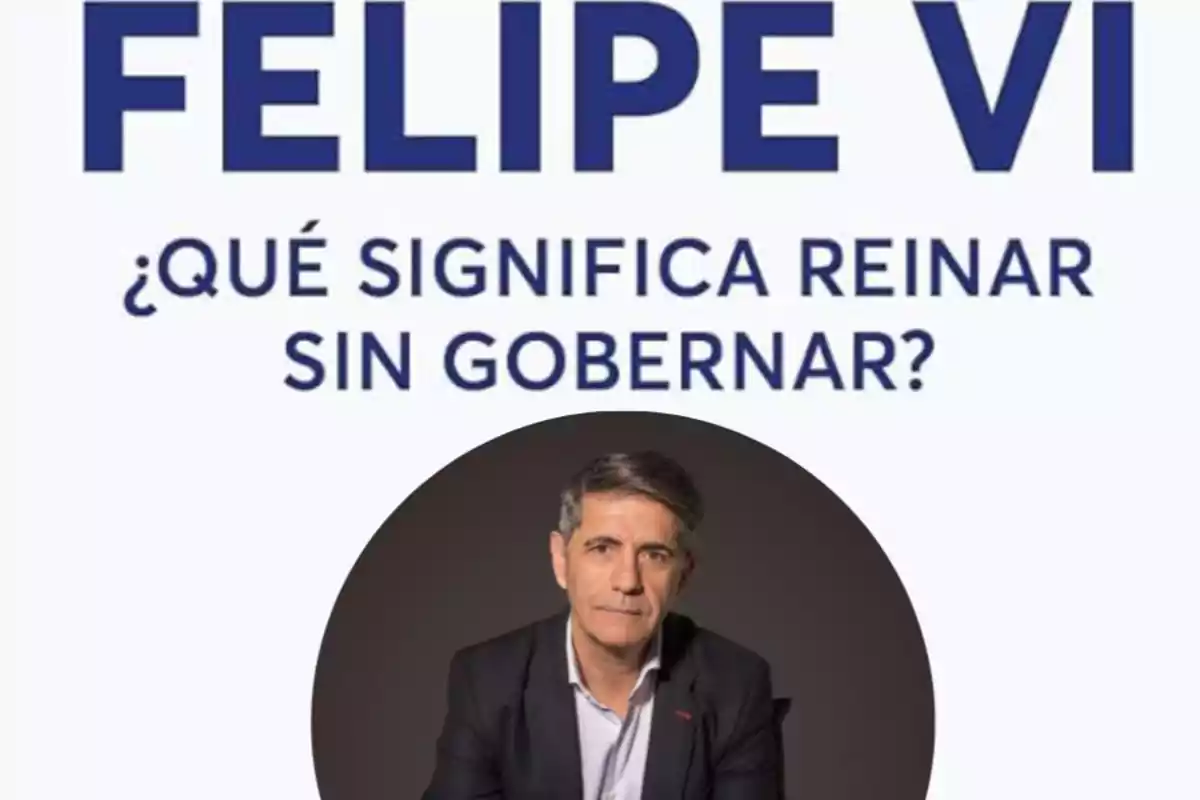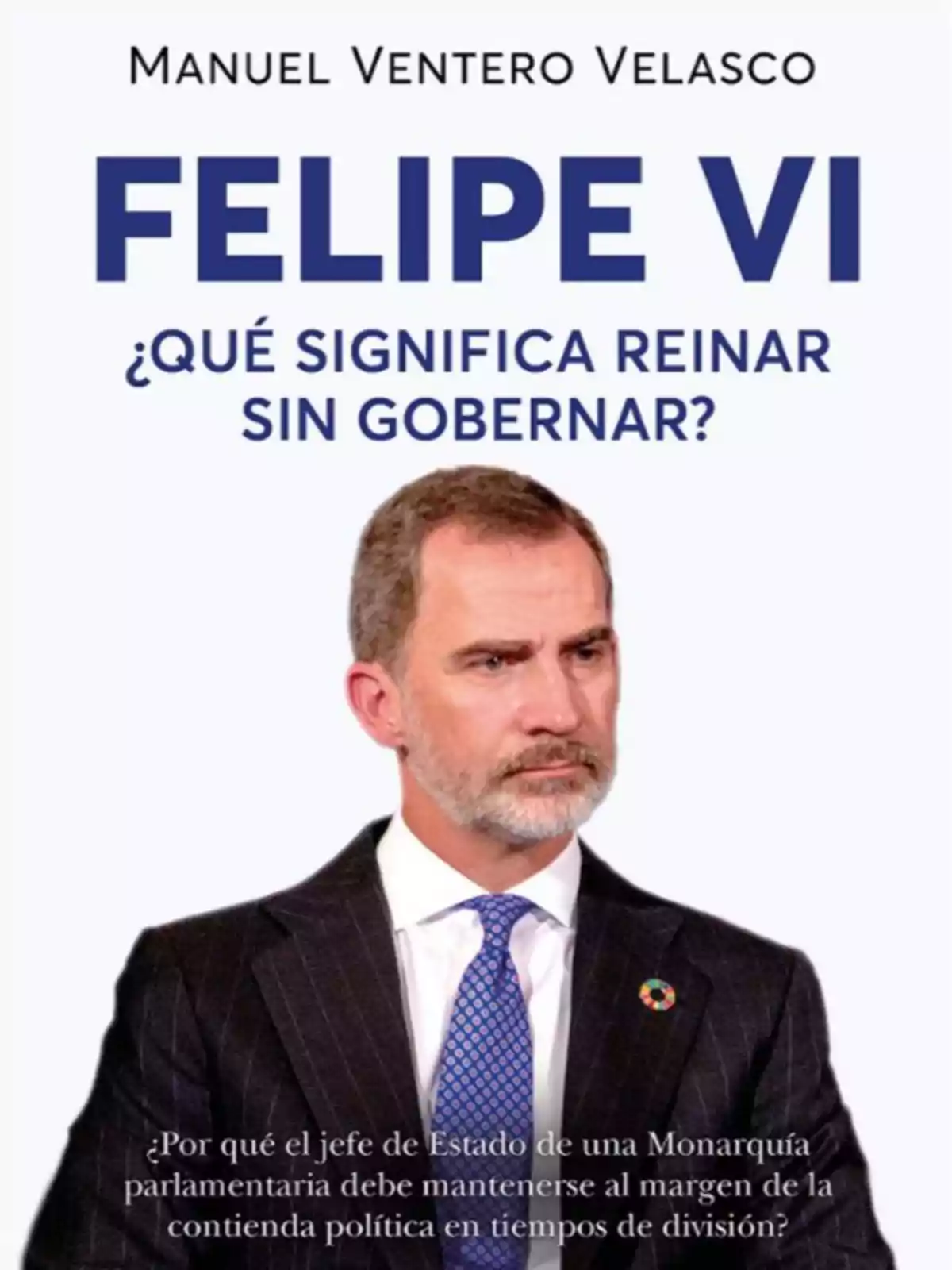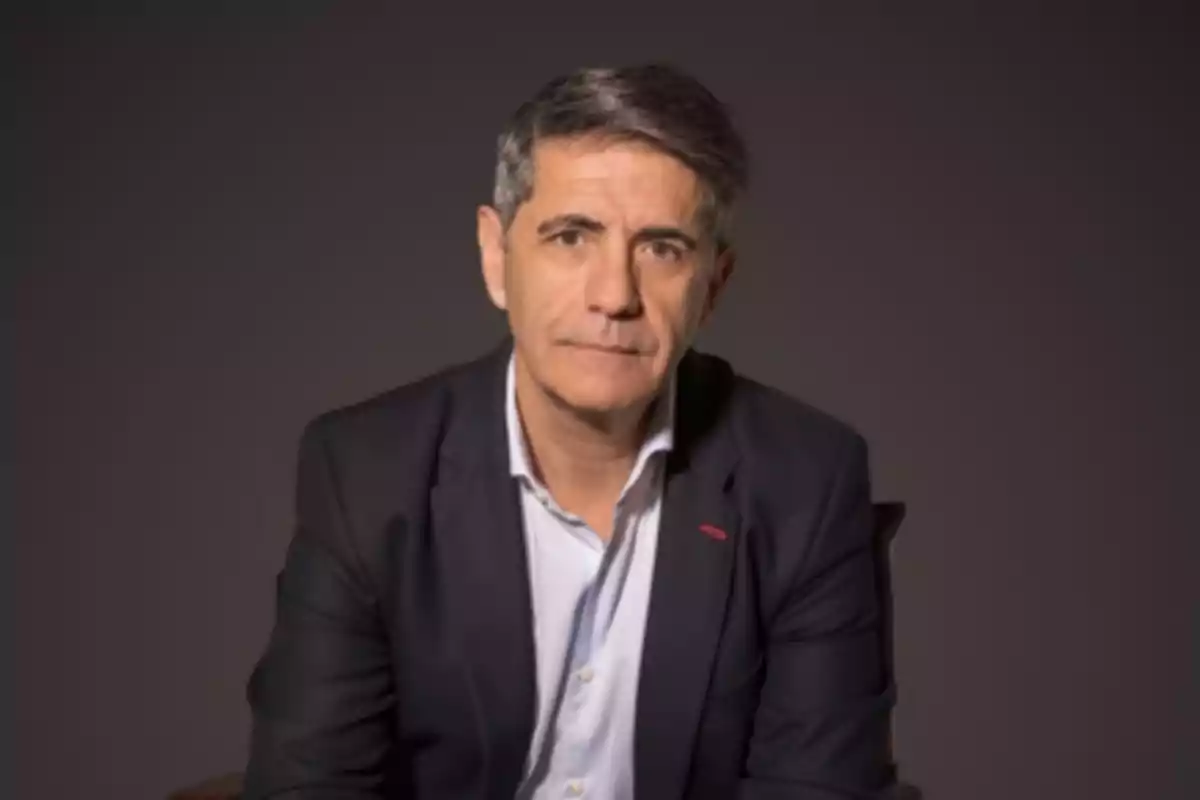
Manuel Ventero, on the Spanish Crown: 'To stay alive, it requires exemplarity'
Manuel Ventero analyzes how King Felipe VI represents 'the unity of the State in a context of political polarization'
In a moment of intense political polarization and institutional wear, journalist and writer Manuel Ventero launches his new book, "Felipe VI: What Does It Mean to Reign Without Governing?" (Editorial Almuzara, 2025).
Through this essay, Ventero seeks to analyze the role of the current monarch from a constitutional, historical, and social perspective. Arguing that the parliamentary monarchy remains compatible—and useful—in a modern democracy like Spain.
According to the author himself in statements to elcierredigital.com, the motivation behind the book arises from the historical journey of our country. Characterized by constant regime changes, conflicts, and ruptures.
"The history of Spain is fascinating. In just two centuries, we can count two kings dethroned in favor of two republics (1873 and 1931), both of which failed. We also find several coups d'état; a civil war; forty years of dictatorship... And, it is also true: an exemplary transition to a 'social and democratic state of law' that, under the political form of a 'parliamentary monarchy,' has provided us with four long decades of freedom and democracy. Something unthinkable," he analyzes.

The essay starts from a central premise: in a parliamentary monarchy, the king doesn't govern, but he does reign. Thus exercising a representative, moderating, and symbolic role of the State.
As Manuel Ventero himself explains, "to reign without governing is what corresponds in a parliamentary monarchy. It is a model in which the absence of potestas is compensated with eminent auctoritas; in which the king is a symbol of the unity and permanence of the State, representative, mediator, moderator, and arbiter... A monarch who, in the face of the changing universe of politics, offers a reference of continuity."
Far from interpreting this role as passive, Ventero argues that the king develops a discreet but relevant institutional role. Removed from partisan debate but present in the constitutional life of the country. "He doesn't intervene in government action although, it should be emphasized, he is not a mere bystander," he states.
Felipe VI: Temperance in Times of Tension
Since his proclamation in 2014, Felipe VI has consolidated an institutional image marked by prudence and firmness. According to Manuel Ventero, one of the main virtues of the current monarch is his ability to stay out of partisan confrontation. Something "essential" in the current context of tension.
"Remaining aloof from partisan struggle is part of the essence of the parliamentary monarchy. The King is behaving impeccably in that sense. If there is a notable quality of Felipe VI, it is, in my opinion, temperance. Something very necessary amid so much reductionism and forgetfulness," Ventero notes.

One of the key concepts in the book is the exemplarity of the monarch as an indispensable condition for his social and political legitimacy. "It is decisive. The King represents the great values of the State and the citizens. The king is a symbol of the best Spain. And that requires, beforehand, an exemplary exercise of his functions," the author assures.
For Ventero, the maintenance of the monarchy in a democratic and plural society can't be based solely on tradition, but on its practical utility and exemplary behavior: "Showing itself useful and efficient to the citizenry; exhibiting exemplary behavior, becoming a permanent reference for citizens and institutions," he summarizes.
Democracy and Monarchy: A Possible Coexistence?
The essay dismantles the idea that monarchy and democracy are incompatible concepts. Ventero recalls that some of the world's most established democracies operate under monarchical regimes: "The monarchy is an anachronistic institution. Only its 'parliamentary' modality—the Spanish one—is compatible with democracy."
"Its preservation over time requires a practice characterized by utility and exemplarity. But the fact is that the most democratic country in the world, which is Norway, is a parliamentary monarchy. And according to The Economist Intelligence Unit, among the 10 most democratic countries in the world, there are 6 parliamentary monarchies," he notes.

From this point of view, what is at stake is not so much the form of the State as the quality of the institutions. "It is not about strengthening the monarchy but about properly preserving the institutional framework. Democracy is not something that is achieved and remains. The risk of erosion of freedoms and rights is permanent. Hence the importance of institutions, which are there to protect citizens from the risks of power," he warns.
A Historical Look: Juan Carlos I and the Transition
In his review of recent history, Ventero also vindicates the role of Juan Carlos I as a key figure of the Transition, highlighting his ability to adapt to the demands of a democratic society.

"I would say in fairness that the greatest example of adaptation to the demands of society was led by Juan Carlos I, the absolute king—by Franco's will—who transformed into a democratic king in just a few months. He piloted a regime change that returned sovereignty to the people and pushed Spaniards of all ideologies to an unprecedented national pact that was the Constitution of 1978."
That legacy, in the author's opinion, must be known and defended against simplifying and polarizing discourses.
The Real Dilemma: Democracy vs. Authoritarianism
For Ventero, the debate about monarchy or republic is today a false dilemma that diverts attention from the real risks to democracy. "We live in complex times, both outside and inside Spain. But we should keep in mind that the real dilemma is not monarchy vs. republic, but democracy vs. dictatorship," he argues. In this sense, he quotes the historic communist leader Santiago Carrillo: "As long as the monarchy respects the Constitution, we will respect the monarchy."
A reflection that, half a century later, acquires new meaning in a political and social context marked by the rise of populism, institutional discredit, and identity debates.
More posts: